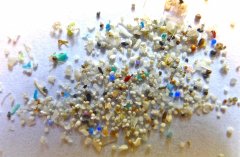Egg residue: egg fenbuprofen residue exceeds the standard by up to 6 times, and egg drug residue penalty standard
We are now very concerned about the issue of food safety. Do you know why there is food safety today? do you know?

The fenpril residues in eggs sampled from Shunhong farm in Changhua county exceeded the standard by physical examination, and the detected amounts were 0.03,0.04 and 0.06 ppm respectively (the residue standard was 0.01 ppm ). The Central District Management Center of the Food and Drug Administration, together with relevant units, immediately went to the farm for investigation and counted 2730 sets of eggs (136.5 boxes, 20 jin / box) in stock on the spot, which has been entrusted to the Health Bureau for safekeeping and limited to the completion of recycling before February 20. The Chemical Bureau of the Environmental Protection Agency and the local environmental protection bureau checked on the spot and found no use of environmental drugs.
The health unit tracked down the "Shunhong Ranch" and sold all the illegal eggs to the Taipei City Merchant Huiyi Egg Co., Ltd., after investigation, the operators purchased a total of 374 cases of the eggs, totaling 7480 jin, in addition to selling them themselves. it is also shipped to thousands of firms in New Taipei City (No. 9 Qingli Street, Tucheng District, New Taipei City) and Junling Agricultural products Co., Ltd. (68 Jinmen Street, Banqiao District, New Taipei City). The two operators were checked by the Health Bureau of the New Taipei Municipal Government. The eggs are sold to retail investors and breakfast operators, and all of them have been sold out of stock.
At present, it is confirmed that a total of 7480 jin of eggs have been detected (the inspection batches on January 25 were sold on January 27-28), while Shunhong Farm sold another 1929 cases of eggs (38580 jin, 380000 580 eggs) from January 29 to February 13. Huang Jincheng, vice chairman of the Council of Agriculture, said that it is possible that all these eggs have been "darted" and eaten by consumers, but due to the interval of several days, fenpril may not be found. "Fenpril metabolizes very fast in hens, and eggs with problems on January 25th may not be able to be detected after the 27th. "
According to the relevant provisions of the Food Safety and Hygiene Management Law, the detection of eggs does not meet the "allowable Standard for Pesticide residues in Animal products", and the illegal products should be destroyed in accordance with Article 52 of the Law to ensure the safety of public consumption. In addition, if operators find that their products are in danger of endangering health and safety, they should, in accordance with Article 7, paragraph 5, of the Food Safety and Hygiene Management Law, take the initiative to stop manufacturing, processing, selling and recycling, and notify the competent authorities of municipalities and counties (cities) directly under the Central Government. If a product that has not been notified in accordance with the law is found, a fine of not less than 30,000 yuan and not more than 3 million yuan will be imposed in accordance with Article 47 of the Law.
According to the Prevention and Inspection Bureau, fenpril is mainly used as pesticides, environmental drugs and animal drugs (limited to dogs and cats). It can be used to kill pests on crops and ticks, fleas and ticks in the environment or in dogs and cats, but it is strictly forbidden to be used in raising livestock for human consumption. Livestock and poultry operators who illegally use fenpril may be fined not less than NT $60, 000 and not more than NT $300000 in accordance with the Animal Drug Administration Act. They are urged not to defy the law to safeguard the food safety of the public.
- Prev

Does litchi branch oak suck litchi longan to have great harm how to prevent and cure? How to deal with the eggs of litchi stink bugs
The most serious disease and insect pest of litchi is the harm of litchi stink bug, so when is the best time to control this kind of disease and pest? To prevent the harm of litchi stink bugs is the key now! Around February every year. The Council of Agriculture held a press conference on the 12th to appeal for serious danger to litchi and longan.
- Next

Oil degradation: plastic waste flooding? Bioplastics don't use oil and degrade very quickly.
Plastic waste flooding? Bioplastics do not use oil and degrade very quickly. Now, a new study from Tel Aviv University in Israel describes a process for making bioplastic polymers derived from microorganisms that feed on algae.
Related
- A one-day flower show brings 130 million yuan in orders! Nanhai, this Phalaenopsis exhibition is amazing
- What do the flower language and meaning of Lutheran tree mean? Precautions for planting Lutheran tree
- Encounter Chaoshan Kongfu tea, not without this cup of Phoenix single clump
- The durian market in Vietnam and Thailand is flooded. The price of imported durian has plummeted by 30-40% in a month.
- Shanghai solved the problem of local vegetable supply by planting 80,000 mu of green leafy vegetables.
- Wageningen University has become the best agricultural university in the world for the seventh time in a row.
- The strongest export season of South African grapes is full of challenges, with exports to Russia falling sharply by 21%.
- Sri Lanka is on the verge of bankruptcy, "Tea for debt" Organic Agriculture Revolution aggravates the Food crisis?
- Turning waste into earthworm manure and worm manure into organic fertilizer-A new choice for auxiliary farming
- Organic rice growers shoulder the responsibility of nurturing agricultural talents! Yinchuan Sustainable Farm with Organic Life Camp

